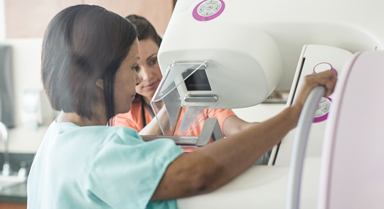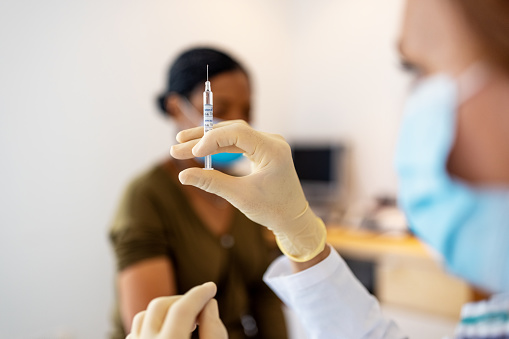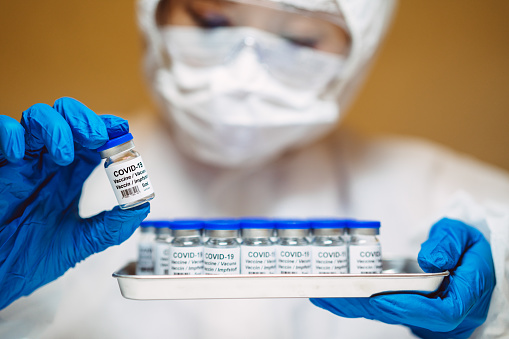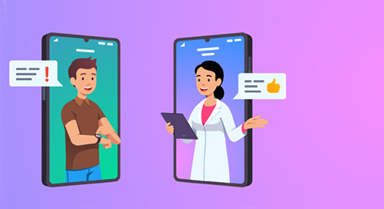Therefore, diabetes can result in hyperglycemia – too much sugar in the blood.1 Over time, if diabetes is not properly managed, it can cause damage to the kidneys, heart, blood vessels, eyes and nerves.2
Types of diabetes
The three main kinds of diabetes are type 1, type 2 and gestational diabetes.
• In type 1 diabetes, insulin production is halted when the insulin-producing cells in the pancreas are attacked by an autoimmune response.1
• In type 2 diabetes, the body either does not produce enough insulin, or produces insulin that does not work correctly. Unlike type 1 diabetes, type 2 is due to a mix of genetic and lifestyle risk factors, and develops over time. Type 2 is the most common type of diabetes.1
• Gestational diabetes is a temporary condition that affects pregnant women, usually during the second or third trimester. Gestational diabetes can result in an increased risk of complications during pregnancy and delivery. Women who have had gestational diabetes and their children are at increased risk of type 2 diabetes in the future.3
Quick facts
• The number of people with diabetes globally has nearly quadrupled since 1980 to 425 million adults. The majority of these are type 2 diabetes.2,4
• Half of the people with diabetes are currently undiagnosed.4
• Adults with diabetes have an increased risk of heart attacks and strokes.2
What are the symptoms of diabetes?
Symptoms of type 1 diabetes may appear suddenly, whereas symptoms of type 2 diabetes are more likely to develop progressively over time. They include increased urination, tiredness, hunger and thirst. In addition, sudden weight loss, dry itchy skin, slow healing wounds and blurry vision. Some people with diabetes also notice feet and hand numbness or tingling, and feeling tired and weak.1,3
Diabetes treatment
Early diagnosis of diabetes is key to improving outcomes. The first action should be to make necessary lifestyle changes, such as dietary improvements, increasing activity and losing weight.3 Work with your provider or Cigna Decision Support to evaluate the benefits of further treatment such as medication.
1. Diabetes. World Health Organization. http://www.who.int/diabetes/en/. Accessed October 9, 2018.
2. Global Report on Diabetes. World Health Organization. http://www.who.int/diabetes/global-report/en/. Accessed October 9, 2018.
3. Diabetes: Key facts. World Health Organization. http://www.who.int/en/news-room/fact-sheets/detail/diabetes. Accessed October 9, 2018.
4. IDF Diabetes Atlas, Eighth Edition 2017. International Diabetes Federation. http://www.diabetesatlas.org/. Accessed October 9, 2018.
This article serves only as a reference and is intended for informational purposes only. Nothing in this article constitutes legal, tax, financial planning, health or medical advice including diagnosis or treatment. Always seek the advice of your physician or other qualified health provider with any questions you may have regarding a medical condition. References to third-party organizations or companies, and/or their products, processes or services, do not constitute an endorsement or warranty thereof. Products and services may not be available in all jurisdictions and are expressly excluded where prohibited by applicable law. All group insurance policies and health benefit plans contain exclusions and limitations. For costs and details of coverage, contact a Cigna representative.
All Cigna products and services are provided exclusively by or through operating subsidiaries of Cigna Corporation, including Cigna Health and Life Insurance Company, Life Insurance Company of North America, Cigna Global Insurance Company Limited, Evernorth Care Solutions, Inc. and Evernorth Behavioral Health, Inc., or through their affiliates and contracted companies.
In the U.S., Cigna Global Health Benefits® group medical and dental plans are insured or administered by Cigna Health and Life Insurance Company. In the U.S. and Canada, group life, accident and disability plans are insured or administered by Life Insurance Company of North America. In Canada, group medical, dental, vision, and evacuation plans are insured or administered by Cigna Life Insurance Company of Canada. Employee Assistance Programs are administered by or through Evernorth Care Solutions, Inc., Evernorth Behavioral Health Inc., Inc. or affiliates and contracted companies. In other jurisdictions, products and services are offered by or through Cigna Global Insurance Company Ltd. or affiliates and contracted companies. Products and services may not be available in all jurisdictions and are expressly excluded where prohibited by applicable law. The information on this site is only a general description of benefits. All insurance policies and group benefit plans contain exclusions and limitations. Please consult your licensed agent or contact Cigna for product availability, costs, and complete details of coverage.









































































































